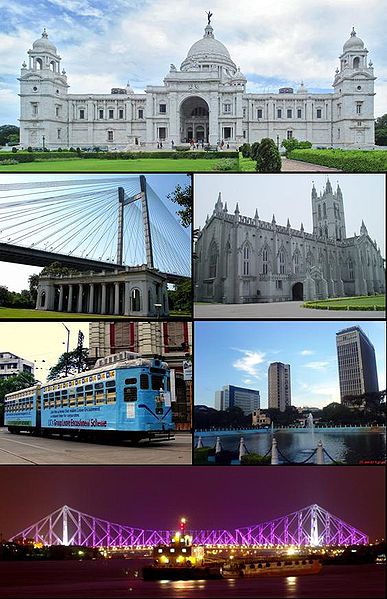1. Paco had been reading till late the night before
We are going to go through the Past Perfect Continuous Tense in this topic. This tense, also called past perfect progressive, puts emphasis on the course or duration of an action taking place before a certain time in the past.
 |
| By Nikkul. Creative Commons. |
Paco was really amazed after having visited New Delhi and Agra. He thought that he had already known almost everything in India.
Had he been travelling along New Delhi all the time he could? Yes, he had. He had been visiting all the places and monuments he had in mind. Although there were lots of places in both the capital and Agra, which he had in his agenda, and he had been trying to know everything about.
But now Paco was in Calcutta and he was astonished with the city. He had been thinking about it like a non developed one and rather messy. On the contrary, Calcutta turned out to be a very interesting and modern city for him.
Example: I
(sleep) had been sleeping for 12 hours when he woke me up.
1. They (wait) _______________ at the station for 90 minutes when the train finally arrived.
2. He (drive) _______________ less than an hour when he ran out of petrol.
3. They were very tired because they (work) ______________ in the factory all day.
4. Paco (not / walk) _______________ in Calcutta for a long time, when it suddenly began to rain.
5. I (study) _______________ all day; so I was tired to go to the disco at night.
|
a) duration before something in the past.
| |
|
b) cause of something in the past.
| |
|
c) past of the Present Perfect Continuous tense in indirect speech.
|
|
a) duration before something in the past.
| |
|
b) cause of something in the past.
| |
|
c) past of the Present Perfect Continuous tense in indirect speech.
|
|
a) duration before something in the past.
| |
|
b) cause of something in the past.
| |
|
c) past of the Present Perfect Continuous tense in indirect speech.
|
Non-continuous verbs
It is important to remember that Non-Continuous Verbs, or stative verbs, cannot be used in any continuous tenses. Also, certain non-continuous meanings for Mixed Verbs cannot be used in continuous tenses. Instead of using Past Perfect Continuous with these verbs, you must use Past Perfect.
See an example:
Kolkata is located in eastern India in the Ganges Delta
The Ganges Delta (also Sunderban Delta or the Bengal Delta) is a river delta in the South Asia region of Bengal, consisting of Bangladesh and the state of West Bengal, India. It is the world's largest delta, and empties into the Bay of Bengal. It is also one of the most fertile regions in the world, thus earning the nickname The Green Delta. The delta, also known as the Ganges-Brahmaputra Delta, stretches from the Hooghly River on the west to the Meghna River on the east. It is approximately 350km (220 miles) across at the Bay of Bengal. Kolkata (formerly Calcutta) and Haldia in India and Mongla in Bangladesh are the principal seaports on the delta.
 |
| By Baerni. GNU free license. |
One of the greatest challenges people living on the Ganges Delta may face in coming years is the threat of rising sea levels caused mostly by subsidence in the region and partly by climate change. An increase of half a meter could result in six million people losing their homes in Bangladesh. Higher temperatures related to climate change could also bring about more severe flooding of the delta, because of increased melting of snow and glaciers in the Himalayas.
Important gas reserves have been discovered in the delta, which could play a major role in the future of the region, and hopefully help lift many of the poor people living in the delta out of poverty. Several major oil companies have invested in exploration of the Ganges delta region.
Adapted from Wikipedia.
Adverb placement with the Past Perfect Continuous Tense
Adverbs such as always, only, never, ever, still, just, ... are placed between the auxiliary verb have and the past participle:
You had previously been studying English before you moved to London.
You had only been waiting there for a few minutes when she arrived.
Past Continuous vs. Past Perfect Continuous
If you do not include 'a duration' such as for five minutes, for two weeks or since Friday, many English speakers choose to use the Past Continuous rather than the Past Perfect Continuous. Be careful because this can change the meaning of the sentence, since Past Continuous emphasizes interrupted actions, whereas Past Perfect Continuous emphasizes a duration of time before something in the past.
He was tired because he was studying so hard.
(This sentence emphasizes that he was tired because he was studying at that exact moment).
He was tired because he had been studying so hard.
(This sentence emphasizes that he was tired because he had been studying over a period of time. It is possible that he was still studying at that moment OR that he had just finished).
About the Past Perfect Continuous with explanations in Spanish.
How do we use and form the Past Continuous Tense? Very good explanations in English.